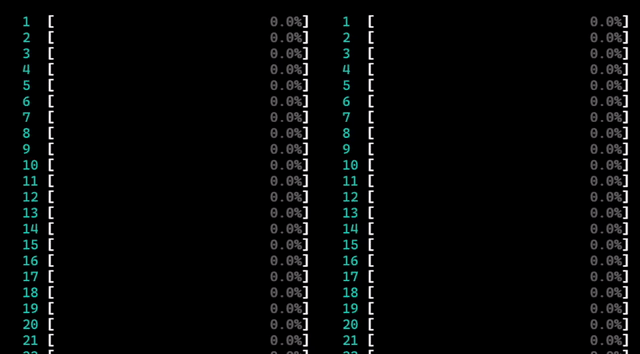
mold is a faster replacement for existing Unix linkers.
It is several times faster than the LLVM lld and GNU ld linker.
mold aims to increase developer productivity by minimizing build time, especially in fast debug, edit and rebuild cycles.
Here is a performance comparison of GNU ld, GNU gold, LLVM lld, and mold when linking final debuginfo-enabled executables for large programs on a simulated 16-core, 32-thread machine.
| Program (linker output size) | GNU ld | GNU gold | LLVM lld | mold |
|---|---|---|---|---|
| MySQL 8.3 (0.47 GiB) | 10.84s | 7.47s | 1.64s | 0.46s |
| Clang 19 (1.56 GiB) | 42.07s | 33.13s | 5.20s | 1.35s |
| Chromium 124 (1.35 GiB) | N/A | 27.40s | 6.10s | 1.52s |
mold supports: x86-64, i386, ARM64, ARM32, 64-bit/32-bit little/big-endian RISC-V, 32-bit PowerPC, 64-bit big-endian PowerPC ELFv1, 64-bit little- endian PowerPC ELFv2, s390x, 64/32-bit LoongArch, SPARC64, m68k, SH-4 and DEC Alpha.
Here is a side-by-side comparison of CPU usage per core for lld (left) and mold (right), linking the same program, a Chromium executable.

Why is link speed important?
If you are using a compiled language like C, C++ or Rust, a compilation consists of two phases.
In the first phase, a compiler compiles the source files into object files (.o files).
In the second phase, a linker takes all object files and combines them into a single executable or shared library file.
The second phase can be time consuming if the build output is large.
Mold can speed up this process, saving time and avoiding distractions while waiting for a long build to be completed.
The difference is most noticeable during rapid debug, edit, and rebuild cycles.
Installation
mold is available in almost all package manager repositories, example:
sudo brew install mold # Brew
sudo apt install mold # APT
sudo emerge mold # Portage
sudo dnf install mold # DNFAnd among many others! Use search in your package manager to find it!
Usage
If you are going to compile C/C++ files, for example use the flag: fuse-ld=mold:
# Clang
clang++ -fuse-ld=mold main.cpp
# GCC
g++ -fuse-ld=mold main.cppIf you are going to compile Assembly files, example hello.s (GNU Assembler - GAS):
.section.data
hello:
.ascii "Hello, World!\n"
.section.text
.globl_start
_start:
mov $1, %rax # syscall: sys_write
mov $1, %rdi # file descriptor: stdout
mov $hello, %rsi # string address
mov $14, %rdx # string length
syscall # calls the kernel
mov $60, %rax # syscall: sys_exit
xor %rdi, %rdi # exit status: 0
syscall # calls the kernelCompile normally:
as --64 -o hello.o hello.sAnd use the template to link:
mold -o hello hello.oChecking if elf was linked with mold:
readelf -p .comment a.out
# Example output
Verbatim dump from '.comment' section:
[ 0] GCC: (Ubuntu 12.3.0-1ubuntu1~23.04) 12.3.0
[2b] mold 1.10.1 (compatible with GNU ld)For more information access the repository on GiiHub.





